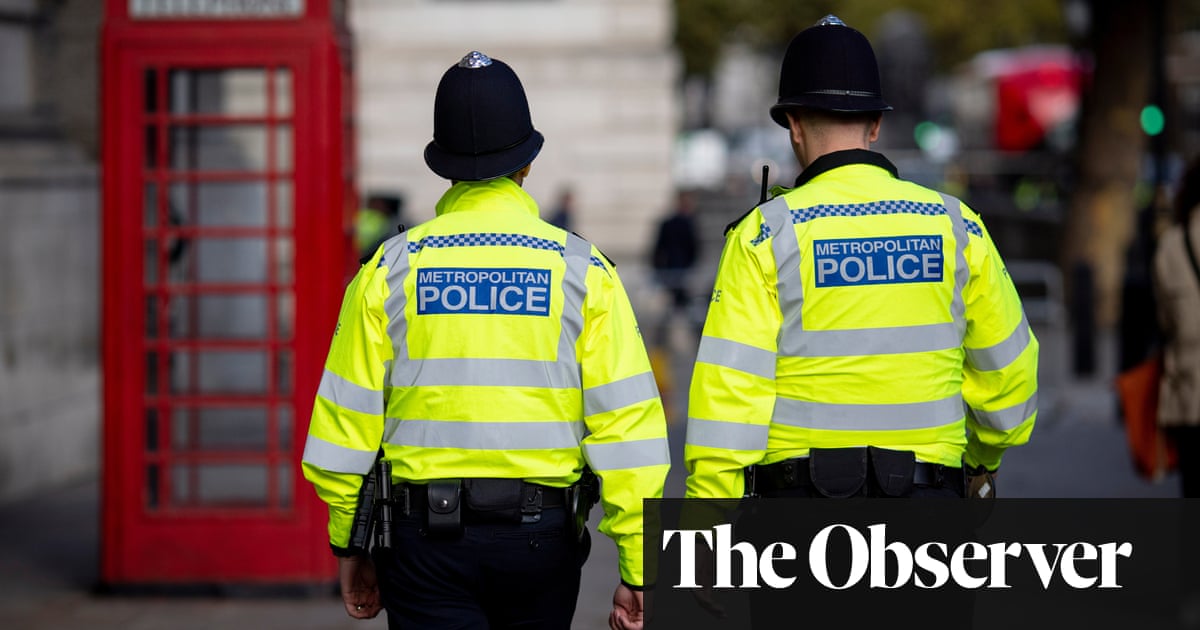
Some councillors in England could stay in their role for more than an extra year after Angela Rayner halted their local elections as part of her devolution plans, the Guardian understands.
Under the revamp, polls due in May in nine councils are being postponed as part of efforts to combine some authorities and introduce six elected mayors.
Announcing the plans to the Commons, Rayner, the communities secretary and deputy prime minister, said it would be pointless to have “elections to bodies that won’t exist”.
The changes affect elections scheduled in May for seven county councils – Essex, East Sussex, Hampshire, Norfolk, Suffolk, Surrey and West Sussex – and for two unitary councils – Thurrock and the Isle of Wight.
Rayner said the shake-up of local government would lead to the introduction of six elected mayors – in Cheshire and Warrington, Cumbria, Greater Essex, Hampshire and Solent, Norfolk and Suffolk, and Sussex and Brighton – along with merged county and district councils.
“These places will get a fast-track ticket to drive real change in their area,” Rayner told MPs, saying that a seventh area, Lancashire, would examine making the same change in the autumn.
“The government’s starting point is for all elections to go ahead unless there is a strong justification for postponement, and the bar is high, and rightly so.
“After careful consideration, I’ve only agreed to postpone elections in places where this is central to our manifesto promise to deliver devolution.
“We’re not in the business of holding elections to bodies that won’t exist and where we don’t know what will replace them. This would be an expensive and irresponsible waste of taxpayers’ money, and any party calling for these elections to go ahead must explain how this waste would be justifiable.”
The announced delay is for only a year, with Rayner’s department pledging that elections for the mayors and the new councils will happen in May 2026. However, the government’s own timetable for setting up the new authorities says many may not be ready until 2027 or later.
One council source said the idea of reorganising their area in time for elections in 2026 was “simply impossible, irrespective of any political or ideological view”.
If that is the case, some of the promised 2026 elections could be for what are known as a shadow administration, a new set of councillors whose main task is to oversee the revamp process. In such as case, the existing councillors could carry on delivering local services.
Kevin Hollinrake, the shadow levelling up secretary, criticised the decision to postpone elections so soon before May.
“The Labour government has massively rushed this whole exercise,” he said. “There has been no attempt to gather consensus within two-tier areas. Local residents have not been consulted.
“This whole process should be considered in slower time, with proper and open consultation, and not imposed from Whitehall on your town hall.”
The Liberal Democrat leader, Ed Davey, whose party hopes to make gains in May, said the plan was “a disgraceful stitch-up between Labour and the Conservatives”.
Nigel Farage, the Reform UK leader, told a press conference that the delays were down to “the connivance of a now terrified Labour party, and Conservative-led councils who of course want to keep the money rolling for at least another couple of years”.
With even the one-year delay prompting criticism from the Conservatives, Liberal Democrats and Reform UK, any further wait could bring worries about the existing mandate of these councillors.
Speaking to a Commons committee on Tuesday, before the reorganisation was announced, Vijay Rangarajan, chief executive of the Electoral Commission, the official elections watchdog, said a delay of more than a year for local polls could damage the “legitimacy of decision-making” by councils.
The government’s proposals to abolish two-tier council areas were announced in December as part of Labour’s aim to devolve more power from Westminster.
With 21 county councils and 10 unitary authorities to hold elections in May, some asked to postpone them to allow time to develop proposals on reorganisation.
Other councils that sought a delay included Devon, Gloucestershire, Kent, Leicestershire, Oxfordshire, Warwickshire and Worcestershire. Most of the affected councils are run by the Conservatives, prompting accusations that the party was seeking to avoid electoral losses.
Farage told a Reform UK press conference: “This decision damages us in terms of how we can perform.” He claimed that the cancellations were in areas where Reform was expected to make gains.
He added: “Our internal polling shows we are ahead in Essex, with maybe even a chance of winning enough seats to certainly be in a governing or coalition governing position in that county. So we are really angry about this.”












